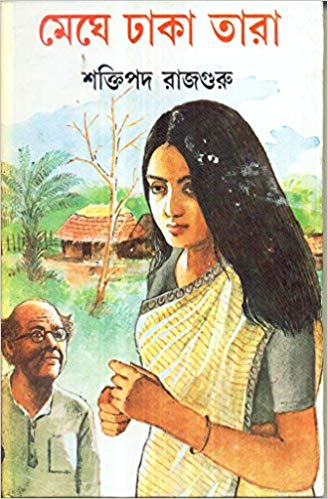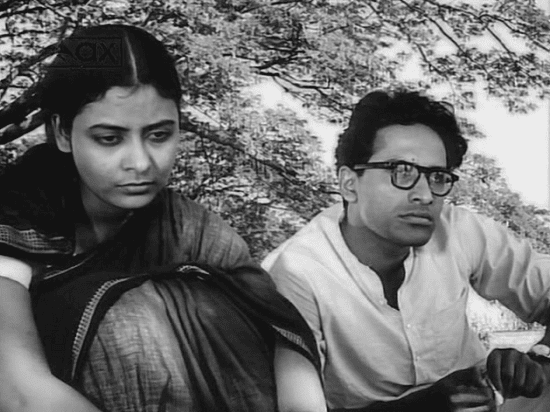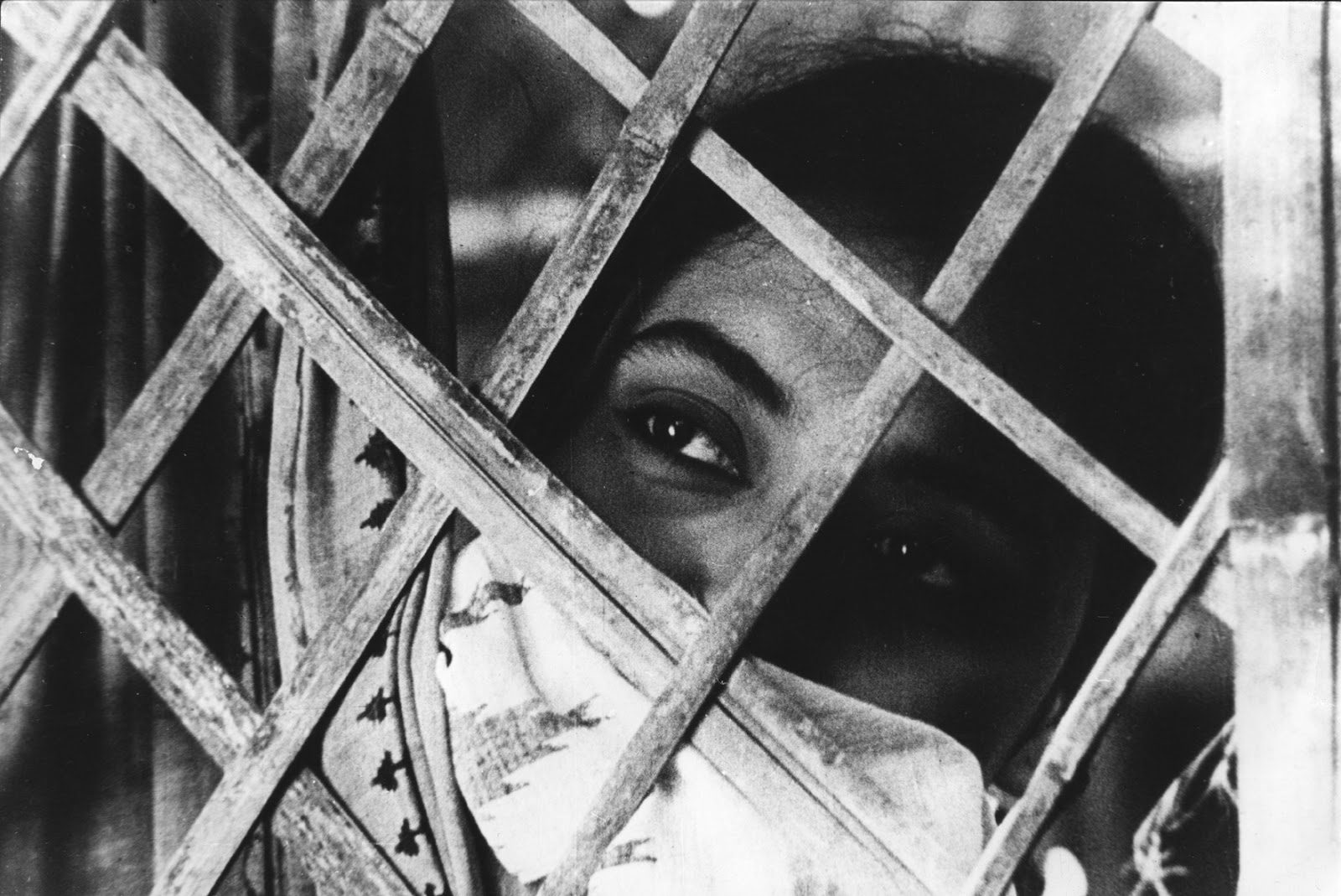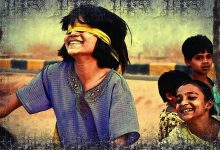Basudeb revisits and critiques Ritwik Ghatak’s Meghe Dhaka Tara. The film vividly points out how the economic hardship, insecurity and rootlessness during the post-partition period degenerates a Bengali family, living in a refugee camp, near Calcutta, into selfishness, self-centeredness, meanness and inhumanity. A Different Truths exclusive.
Meghe Dhaka Tara (The Cloud Shrouded Star), a Bengali film, directed by Ritwik  Ghatak, delineates how a Bengali refugee family migrating from East Bengal (now Bangladesh) after the Indian Partition in 1947 becomes the victim of economic hardship, pangs of rootlessness and the refugeehood in the government refugee camp, in a suburb of Calcutta metropolis.
Ghatak, delineates how a Bengali refugee family migrating from East Bengal (now Bangladesh) after the Indian Partition in 1947 becomes the victim of economic hardship, pangs of rootlessness and the refugeehood in the government refugee camp, in a suburb of Calcutta metropolis.
The film is based on the Bengali novel written by Shaktipada Rajguru. Ghatak’s film vividly points out how the economic hardship, insecurity and rootlessness during the post-partition period degenerates a Bengali family, living in a refugee camp near Calcutta, into selfishness, self-centeredness, meanness and inhumanity.
Meghe Dhaka Tara does not show any communal riots between the two religious’ communities. Ghatak’s film depicts not only the photographic realism but also the realism beneath the surface, both physical and psychological, unlike the directors like Satyajit Ray, Mrinal Sen, Tapan Sinha and others. As an example, let me refer to one shot at the end of the film Meghe Dhaka Tara when Neeta cries out, Dada aami Bachte Chai (Dada let me live). This moment in the film is the psychological reality beneath the surface reality. It shocks the audience that faces something stark and crude, but it is a part of the reality in that context.
Ghatak’s film depicts not only the photographic realism but also the realism beneath the surface, both physical and psychological.
In Meghe Dhaka Tare, Ghatak focuses how Neeta sacrifices all her happiness for the sustenance of her parents, brothers and her younger sister. She stops going to her college, engages herself in private tuitions, and thus maintains the family of her parents. She feels that her elder brother, Sankar will be a singer of repute in future if he is given an opportunity. Neeta helps him also by giving him money from her meagre income from private tuitions.
 Sankar, though the eldest son of the family, is also reluctant to take the financial responsibility of the family. He is a different type of person but under no circumstances he can be considered a selfish and greedy person. After her father fractures his bone in an accident, the entire financial responsibility shifts on her shoulder. She is the only earning member of the family. Neeta finances her younger brother to continue his college education with an expectation that one day he will establish himself in life and relieve her of the gruesome responsibility.
Sankar, though the eldest son of the family, is also reluctant to take the financial responsibility of the family. He is a different type of person but under no circumstances he can be considered a selfish and greedy person. After her father fractures his bone in an accident, the entire financial responsibility shifts on her shoulder. She is the only earning member of the family. Neeta finances her younger brother to continue his college education with an expectation that one day he will establish himself in life and relieve her of the gruesome responsibility.
Neeta and Sanat are in love. Sanat is adequately qualified to secure a job. He wants to marry Neeta and to establish a family. However, it is difficult for Neeta to desert her parents and other members of her family. She asks Sanat to wait till her brothers establish themselves in life and take the responsibility of the family. Meanwhile, Sanat starts visiting Neeta’s house. Sanat is an eligible bachelor.
Geeta, Neeta’s younger sister is flippant, selfish and tricky. She decides to grab the opportunity of being married with a successful man like Sanat even at the cost of her sister’s love and happiness. Geeta knows that Neeta and Sanat are in love. But that does not bother her; so, she plays all her tricks upon her sister’s fiancé. Sanat infatuated by her tempting physical charm marries her, owns an apartment and they live together in the city.
Geeta, Neeta’s younger sister is flippant, selfish and tricky. She decides to grab the opportunity of being married with a successful man like Sanat even at the cost of her sister’s love and happiness.
Sankar thinks that Sanat has no principle. He feels for Neeta’s sorrow. The cruellest thing is that Neeta’s mother tacitly supports this marriage knowing the existing relationship between Sanat and her elder daughter, Neeta. The apprehension of her mother is that in the event of Neeta’s marriage with Sanat, they will be left uncared and everybody in the family will simply starve. If the marriage between Geeta and Sanat materialises, Neeta’s income will be intact, and they will survive. Her mother unhesitatingly says that the family will not run even for a day if Neeta is married to Sanat. Let Geeta marry Sanat.
Sankar is a silent observer of all events and remains all along sympathetic to  Neeta for her sacrifice. He is hurt by the heartlessness of his mother and his younger sister. Neeta is the only person in the family who supports his artistic pursuit. Being totally upset he leaves for Bombay to build his career in music.
Neeta for her sacrifice. He is hurt by the heartlessness of his mother and his younger sister. Neeta is the only person in the family who supports his artistic pursuit. Being totally upset he leaves for Bombay to build his career in music.
The irony in the life of Neeta is that her brother Montu leads an extravagant life with the money he gets from Neeta. Neeta thinks that Montu will mend his ways in the course of time. She adores her younger brother. Montu’s selfishness is so cruel that he decides to leave the family when he suddenly secures a job as a labour in a factory. This is one of the shocking events in Neeta’s life. She accepts this selfish role of her brother with calmness of her mind. After some days, Montu meets an accident in his work place, returns home and becomes a permanent liability of his sister.
Hard work from dawn till dusk, accompanied by worries gradually kills Neeta’s vitality. When Montu is in his hospital bed after the accident, she is again in problems. Nobody is by her side to help. She then goes for Sanat’s financial help for the treatment of Montu. Geeta plays her mischief on Sanat. She returns home with empty hand.
Neeta is afflicted by tuberculosis, but she keeps it a secret. She totally isolates herself from everyone. She lives in a separate room. Days go on this way. Suddenly news spreads in the locality that Sankar who has gone to Bombay has made a successful career in music. When he was jobless and a vagabond depending upon Neeta’s money, he was a nuisance to all in that locality including to the members of his family except Neeta. Now he has become the pride of Bengal. Sankar returns his home. Geeta affectionately demands that Sankar should give her a gold necklace if she mothers a male child. The mother demands that Sankar should construct a double storied brick building. Neeta is confined to her room. She peeps through the bamboo-made window of her hut and sees everyone happy. It is a grand family union!
Sankar asks his mother of Neeta’s whereabouts. His mother points out the room where she stays alone. He goes to her and discovers that her sister, who has helped everyone in the family to get established in life is suffering, all alone, from tuberculosis. Sankar arranges the proper treatment of his sister.
Neeta is now in a sanatorium in Shillong. Sankar visits to Red Cross Hospital there. When Sankar meets Neeta, she cries out and says, ‘Dada, I want to live’. Her cry trembles through the mountains and valleys. Sankar embraces her firmly with his non-verbal assurance of life.
The film ends here with Neeta’s heart-rending cry. Meghe Dhaka Tara is one of the Indian partition trilogies. The trilogy consists of two other films, Komal Gandhar and Subarnarekha. All the three films based upon the locale in the suburban areas of Calcutta showcase blatant film narratives.
Meghe Dhaka Tara underscores that even in this world of man’s cunning, nastiness and self-centeredness, man has not lost the essential goodness of life.
Man’s meanness, hypocrisy and selfishness, all are man’s bestiality. Meghe Dhaka Tara underscores that even in this world of man’s cunning, nastiness and self-centeredness, man has not lost the essential goodness of life.
Neeta and Sankar represent basic goodness of life. They are aware of the weird and the insensible behaviour of the people around them. They still accept and accommodate them all in their lives. In a refugee camp in the post-partition period, in Bengal, when everyone struggles for existence, Neeta sacrifices her own happiness. She could have married Sanat ignoring her parents and her two brothers and a sister. But she does not do that.
And Sankar was helpless when he is jobless. But he is a talented singer. When he is established in life and he returns home, he goes to Neeta, accepts her knowing well that she is a tuberculosis patient and arranges the treatment of his sister and assures her of all security in life. Neeta and Sankar are the hopes of human life.
Ghatak, born on November 4, 1925, was a part of the generation that witnessed the pangs of Indian Partition in 1947. Among his films are Nagarik, Ajantrik, Subarnarekha, Meghe Dhaka Tara are notable. He was an iconic Bengali film director. His films are not autobiographies. But they are fictional film narratives. The music in his films in coordination with light in black and white is intrinsically harmonised with his film narratives. Nagarik (The Citizen) is a landmark in the history of Indian film. The film was made sometime, in 1952 before the release (1955) of Satyajit Ray’s Pather Panchali (Song of the Little Road). An Indian Bengali-language drama film, Nagarik, was released, in 1977.
©Basudev Chakraborti
Picture from the Internet





 By
By
 By
By
 By
By
 By
By